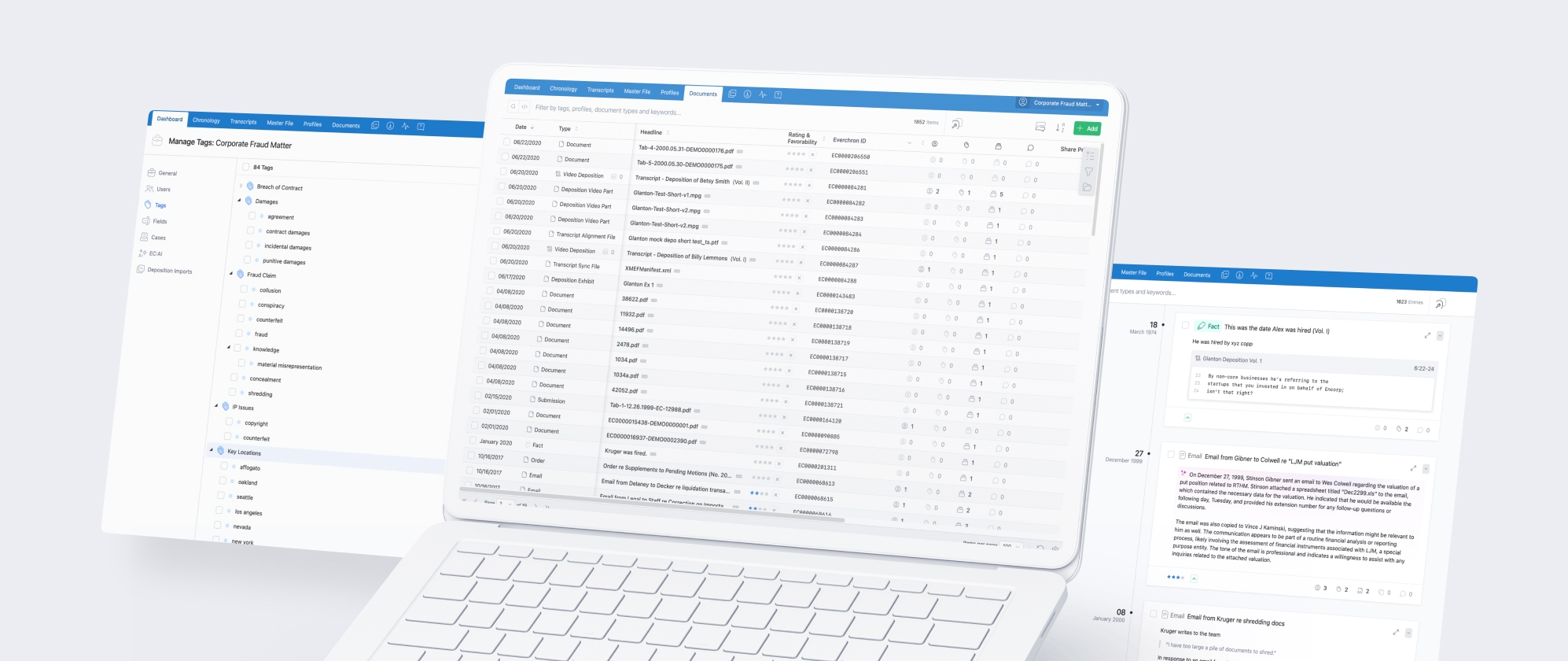
In a prior post, we discussed how the practice of building case chronologies is literally universal (see here). A case chronology is essential for any dispute, litigation and investigation, and legal teams create one on every case. Similarly, fact management is critical for building chronologies: you cannot have an effective case chronology without facts.
In this context, facts refer to non-document entries in your case chronology. For example, a fact can be an event or occurrence (e.g., meeting, phone call), or information conveyed and any actions that occurred at such an event. Also, if a document has been destroyed or cannot be found, its content can live on as a fact, to the extent such content can be credibly confirmed.
The details of the fact matter - i.e., the when, what, where and who of it. The why matters as well, but that may take more digging. Of equal importance is the source (or sources) of the fact. Facts need to be authenticated for you to confidently rely on them. Not just from an evidentiary perspective – facts should meet a threshold level of confidence to even be added to your case chronology.
Facts can be drawn from many sources and you need to be able to evaluate the credibility of said sources. For example, the source can be a person, such as a party or related witness, a document reference, an article, or a video or audio recording. If the source is a person, you need to look at how the fact was conveyed, including any incentives to mislead or misrepresent. The fact can be conveyed in a deposition, witness statement or declaration, or it can be a witness interview or even a less formal exchange. Also, credibility can turn on whether the source relying on direct knowledge of the fact or on something second- or third- hand.
Though not as clearcut as documents, facts should not be thought of as a lesser form of evidence. Rather, facts can carry as much and in some cases more weight than documents. For example, uncovering the existence of an oral agreement contrary to one party's claims can completely change the course of a dispute.
The case chronology evolves over the life of a matter. At the start of a case or investigation, you are working to piece together the story of the matter, and this often means identifying facts. These facts generate leads: custodians to target and how to prioritize them, document troves to explore, and search terms to run. Simply put, if you are only relying on documents for your fact development, you are doing it wrong.
To do things right, when you are evaluating case management software make sure the tools include the following essentials:
- The ability to create facts, and see them in context with your key documents. First and foremost, you need to be able to add facts to your case chronology. Facts should exist alongside document entries, so you can quickly see how your fact and document entries relate.
- The ability to assign metadata and coding to facts. Facts need to be fleshed out with additional data points. As discussed above, you need to be able to track the source(s) of the fact. Also, like any case chronology entry, facts have a temporal element, so you need to be able to assign date-time information to them. Similarly, like documents, facts relate to the issues of a case, so you need to be able to code facts for issues.
- The ability to associate key people and entities with facts. In addition to needing to see your facts alongside your key documents, you need to be able to deepen your understanding of the facts by linking them to key players and entities in the litigation or investigation. These associations are separate from the source of a fact and go to the substance of it (e.g., who participated in the call or at the meeting).
- The ability to link facts to documents and other facts. As you probably picked up by now, our general theme is that facts do not exist in a vacuum. Context matters, so it is crucial to be able to link your facts to relevant documents and other related facts.
I would consider the above the basic requirements for effective litigation management software. In the coming months, we will follow-up with the more advanced elements.

